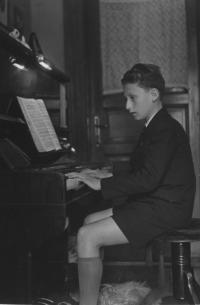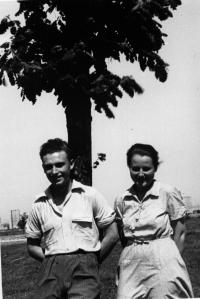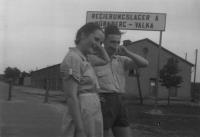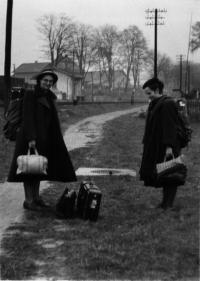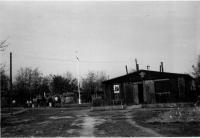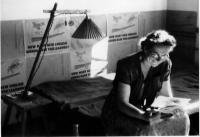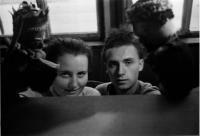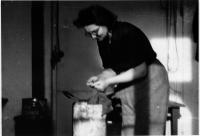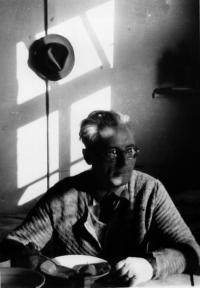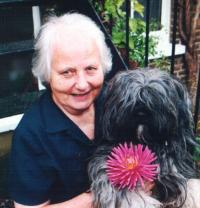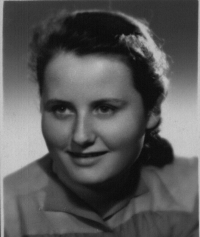Czech scouting is unique
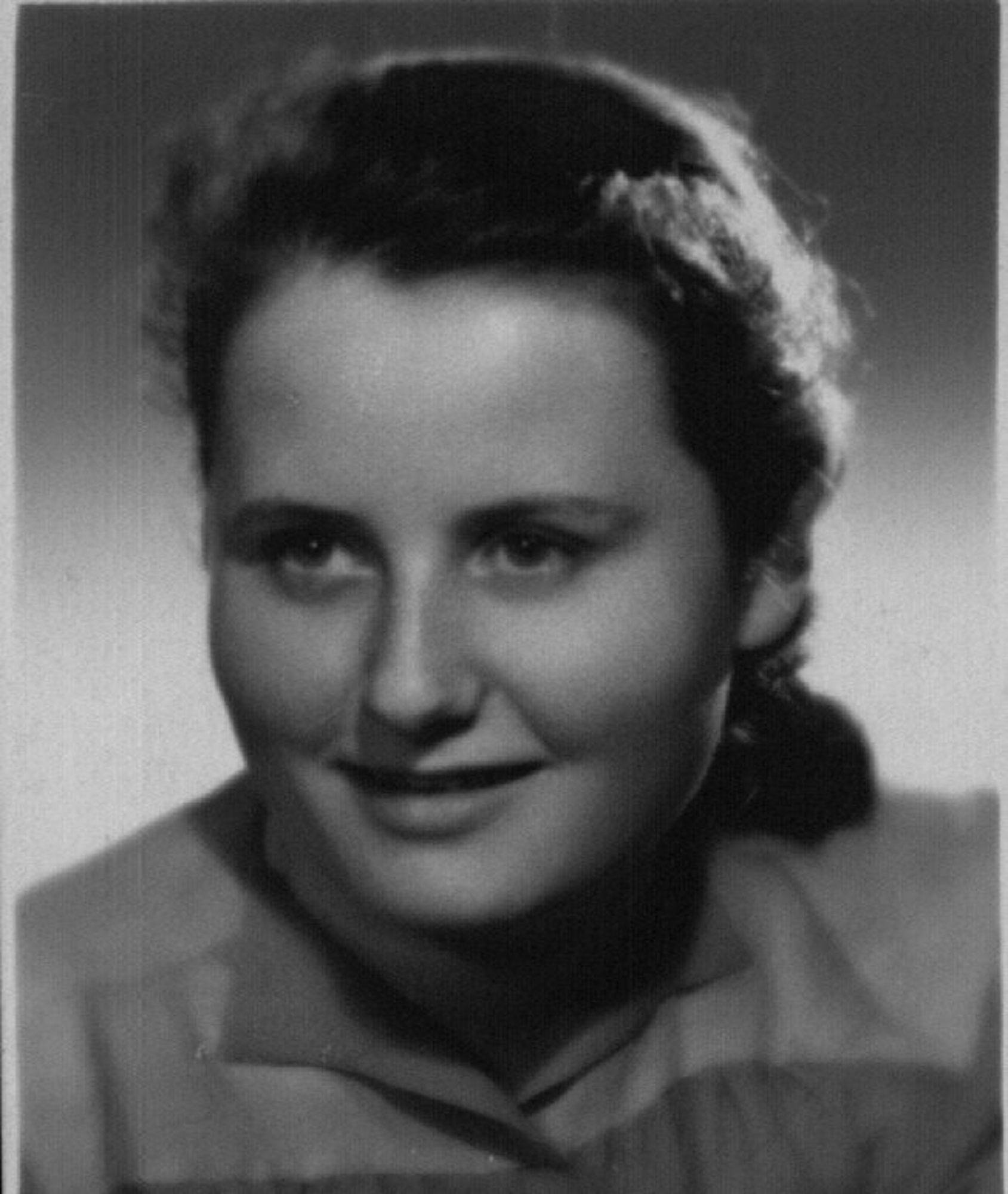
Download image
Sylva Šimsová, Scout nickname “Švestka” (plum), was born on 24 February 1931 in Prague. Her father, Karel Maiwald, was a member of the headquarters of the PVVZ (the Petition Committee “Faithfull we Remain”). Her family helped the persecuted during the times of the Protectorate. After the war, she was a member of the 13th troop of the river Scouts in Prague. Their clubhouse was located underneath the Olšany cemetery and later in the house U Křižovníků. In 1949, she, her future husband Karel Janovický-Bohuš Šimsa, and her parents managed to escape via refugee camps in Bavaria (Valka) to Great Britain. She studied library science and worked in this sector until the mid-1980s, when she started to teach people how to use personal computers. She currently lives with her husband in northern London.
